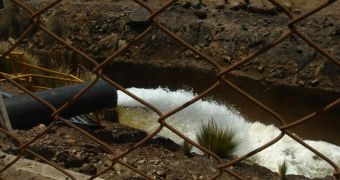A recent report issued by the US National Research Council (NRC) indicates that soon we might be able to drink toilet water, without having to worry about potential health risks, due to an innovative technology seeking to purify municipal wastewater.
Such a strategy, still far away from being implemented, is taken into consideration as an effective way of preserving water supplies.
[admark=1]Even though it sounds a little gross, most homeowners would manage to reuse the water they flush, due to a revolutionary system that converts it into clean drinking water.
"Wastewater reuse is poised to become a legitimate part of the nation's water supply portfolio given recent improvements to treatment processes," indicates R. Rhodes Trussell, chair of the committee behind this report and president of Trussell Technologies, Pasadena, Calif.
At this point in time, new analysis taken into consideration by experts indicate that wastewater, properly treated and reused, could actually be safer than existing water supplies, taking into consideration the amount of chemical contaminants and microbes producing diseases.
Currently, the costs triggered by water reuse projects are expected to be higher than the ones generated by other conservation strategies, but more affordable than seawater desalination.
"Although reuse is not a panacea, wastewater discharged to the environment is of such quantity that it could measurably complement water from other sources and management strategies," adds Trussell.
Also, exploiting wastewater in a suitable manner would help decrease the carbon footprint of households and make water-stressed regions, like Texas for example, overcome their difficulties.
The same study indicates that wastewater purification methods are being developed and analyzed in14 areas of research.
At this point in time, wastewater can be filtered and reused to water our lawn, for example, but actually drinking the supplies we flush daily would count as a premiere, leading to a 'modern water revolution.'

 14 DAY TRIAL //
14 DAY TRIAL //